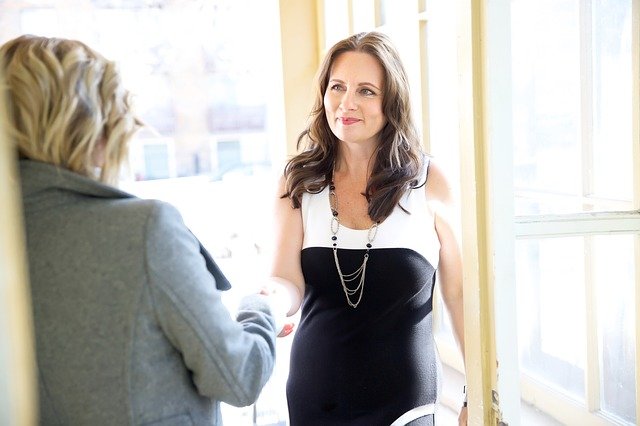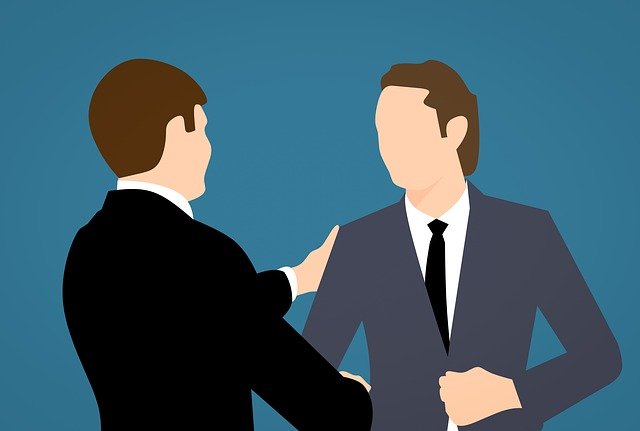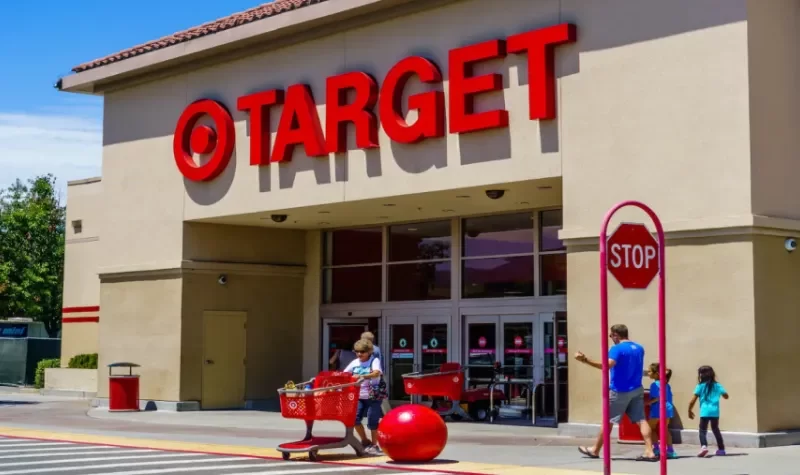First, how long do interviews last?
The length of an interview depends on the format and stage of the hiring process, but on average, you can expect your job interview to take 45 minutes to one hour.
But if your interview went more quickly, particularly if it was your first one and was conducted over the phone or via video, that isn’t necessarily a bad thing.
Interviews conducted in person take more time. A technical interview, a group interview, or a panel interview may last for several hours.
Always ask the employer about the format and schedule before your interview so that you are aware of what to expect, who you will be meeting, and how to best prepare.
Because you don’t want to be surprised by a technical interview when you were hoping for a light-hearted phone interview with HR, you should inquire about the process ahead of time.
Table of Contents
How Long Do Interviews Last?
You might be curious about the duration of a job interview as you get ready for one.’ Depending on the type of interview you’re attending, the length of a job interview frequently varies. While some interviewing platforms used by professionals offer a more convenient and condensed interview format, others may naturally allow for more time. The various interview types are listed below along with information on how long they usually last:
Technical Interviews
For positions in engineering, software development, and other related fields, some companies conduct technical interviews. These typically take 45 to an hour, just like the first-round in-person interviews. They might appear at any time during the hiring process. The interviewer will probably put your technical knowledge to the test at this point. You might be asked to give a verbal response or to record your responses on paper.
Group Interviews
You and a number of other applicants meet with the hiring manager or a panel of interviewers simultaneously during a group interview. Group interviews are sometimes used by businesses to see how applicants interact with one another and to speed up the hiring process. Depending on the number of people in the group, these interviews typically last an hour.
Open Hiring Interviews
Some businesses hold open hiring occasions on specific days or during career fairs. You can meet interviewers during these events at any time while they are open for business. The interviewer looks over your resume and then conducts an informal interview. In some circumstances, the hiring manager might make you an offer of employment right away. Open interviews for employment typically last 30 to 60 minutes.
Phone Interviews
The first interview you encounter during the hiring process is frequently a phone interview. Usually, a recruiter or human resources agent will call you to confirm some of the essential information on your CV. They might also inquire as to the best time for you to come in for a face-to-face interview and your potential start date should you be hired. They might occasionally ask you what kind of pay you need. Typically, this is a brief exchange.
In-person Interviews
Depending on the hiring manager’s preferences and if you need to meet with a panel of interviewers, in-person interviews typically last 45 to 90 minutes. Sometimes you can perform some of the essential job duties while conducting an interview with a company for up to an entire day.
Video Interviews
Any time during the hiring process, video interviews are permitted. In order to see how you respond to various questions, some recruiters may substitute video interviews for phone calls. A video interview may be scheduled in place of an in-person interview if you applied for a job in a different location than you did or the hiring manager works from a different location.

How Long Does The Preliminary Interview Last?
Following are the two key phases of the pre-interview procedure:
Schedule An Interview
The employer will typically get in touch with you to set up an initial interview within a week of receiving your application or resume. Depending on the employer’s preferences, the initial interview may be conducted via phone, video, or in-person. You can start preparing by inquiring about the time allotted for the interview when the employer contacts you to set up a date and time. You can find out how long the interviewer anticipates the conversation to last by asking this question.
Arrive At An Interview
Getting to your interview is the next step in the preparation process. You should plan to show up at the interview between 10 and 15 minutes before it is scheduled to begin. The interviewer will appreciate your respect and sense of seriousness if you get there early. It also demonstrates how well you manage your time.
For a phone or video interview, you can also arrange to show up early. If the interview is conducted online, you can log in to the conferencing system beforehand and wait for the interviewer to show up. Turn up your ring volume and arrive at the call a few minutes early to ensure you don’t miss the interviewer’s call when conducting phone interviews.
Read about: Ask For Feedback After Job Rejection
Why Some Job Interviews Are Long?
The length of some job interviews and the shortness of others can depend on a number of factors. Here are a few elements that may have an impact on the procedure.
The Type Of Industry Can Affect The Job Interview Process
To fill a position in the government, for instance, requires going through a number of layers of bureaucracy and procedures that might not be present in other sectors, like the restaurant and food sector.
According to a 2015 study by Glassdoor:
- Government positions can take 53.8 days
- Restaurants and bars take 10.2 days
The Job Title Or Position Can Impact The Job Interview Process
Take the example of a candidate who is being interviewed for an executive position. In that situation, it is likely that the process will necessitate numerous meetings over the course of several weeks or even months with various stakeholders or interview panelists.
An entry-level position, however, won’t require a meeting with numerous groups, speeding up the procedure.
Other elements that could affect the duration and flow of job interviews include:
- The company’s budget changes. During the hiring and recruitment process, a company’s budget may change in a good or bad way, causing the process to be delayed or extended. A company might even remove a posting occasionally if it’s not financially feasible.
- The company modifies the job description. The process could also be delayed if the company decides to alter the job description for some reason.
- The company extends the number of days the job posting is open. Even though there have already been interviews, the company decides to extend the job posting to attract a larger pool of applicants. The applicant may have been among the first people the business interviewed.
- A company may have staffing capacity challenges due to its company size. For instance, they only have one HR employee managing all of the internal procedures to fill the roles, even though there are multiple open positions at any given time.
- The hiring manager might find it challenging to coordinate the schedules of all the important decision-makers in order to reach a decision.
- The company may have two top candidates, and now they need to involve other interview panelists or decision-makers in the process.
- The company may offer the job to one candidate but want to wait until the candidate officially accepts to notify all candidates that the role is filled.
- The company decides to make internal changes and is not ready to move the process forward.
Read about: How To Respond To An Interview Email? Top Suggestions – Work Insights
Tips On How To Navigate A Long Job Interviewing Process
Being outstanding at the fundamentals is a crucial tactic for navigating challenging and drawn-out job interview processes.
The following are hints I believe every job candidate should learn and use throughout the interview process:
- Find out how many people will be participating in the interview, and always bring an adequate number of brand-new resume copies.
- Make sure the resume contains accurate contact information. I’ve seen applicants spell their names incorrectly or leave off their entire phone number on their resumes.
- Before leaving the interview with the hiring manager or the interview panel, always ask about the next steps in their hiring process, including the timeline. Never assume; always ask!
- Keep your social media profiles complete and updated with the information you want potential employers to see or know about you.
- If the process is taking longer than the time you were told by the recruiter, hiring manager, or interview panelists, do not be afraid to call the recruiter to inquire about the status of the position.
- Till you receive a formal offer letter, always keep your options open when you are in a job interview. Never quit your job for a new one without putting it in writing.
- Maintain a positive attitude throughout the interview process and know when to move on. Keep in mind that your delays do not mean that you won’t get the job you want. So keep moving forward and avoid getting stuck.
- Always send a thank you note or email to the hiring manager and interviewing panelists immediately following the interview. Never skip this important step.
- Make sure the potential employers contacting your references are aware of them, and be ready for their calls.
- Most importantly, let those people know during the interview process that they are references for you.
How To Maximize Your Time During An Interview
You can make the most of your interview time by taking the following actions:
Practice Answers To Normal Interview Questions
You can plan how much time to devote to each answer by practicing responses to typical interview questions that you anticipate the interviewer will ask. Ask a friend or member of your family to conduct a mock interview with you, and keep track of how long your answers take. If the employer withholds the duration of the interview from you, conducting a mock interview can also assist you in estimating how long the actual interview might last.
Prepare The Interviewer Questions
Try to prepare a list of specific topics and questions you want to ask the interviewer before the interview. By doing this, you can get an outline that will make it easier for you to transition between topics and make the most of the interview’s time.
Keep The Interview Relevant
Make an effort to keep conversations with the interviewer relevant and on-topic while you are there in the interview. Even though some interviews may become informal or stray slightly from the subject at hand, you should make an effort to bring the conversation back to issues that demonstrate why you are the most qualified applicant. By doing this, you can make sure that you don’t miss the chance to highlight your strongest qualifications before the interviewer runs out of time.
What To Do Before The Interview?
Candidates frequently arrive earlier than expected in an effort to make a good impression. Prior to the interview, make sure you or a staff member has the opportunity to introduce yourself.
What To Do After The Interview?
Does the candidate need any additional information after the discussions, to meet the staff, or to tour the facilities?
The more you can prepare for your interviews, the better you will be at estimating how long they will last. This will help you have a more successful recruitment process.
Taking a car, with tickets costing an average of 18 USD and a 3-hour travel time, is the fastest way to travel from Raleigh to Myrtle Beach.
Conclusion
The answer to how long do interviews last varies according to differents factors.
You did your research, put on your best suit, and even flossed your teeth twice to make sure you didn’t have a piece of spinach stuck between your teeth. But there’s one very important question you haven’t been able to answer: How long will the interview take?
Well, to be honest, it’s a big difference. Hiring managers are advised to set aside an hour for in-person interviews, but there have been countless reports of interviews lasting much less than that. Some interviewees were even interrupted at the end of the interview because of scheduling conflicts.
Do you feel like you need a new job, or your interview didn’t go as planned? V-soft Consulting has hundreds of job opportunities for people like you. Please share your resume with us so we can do all the hard work for you.



